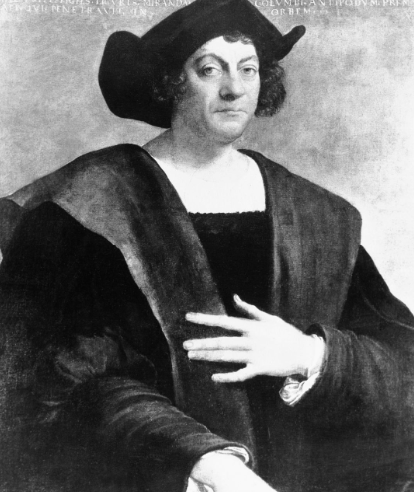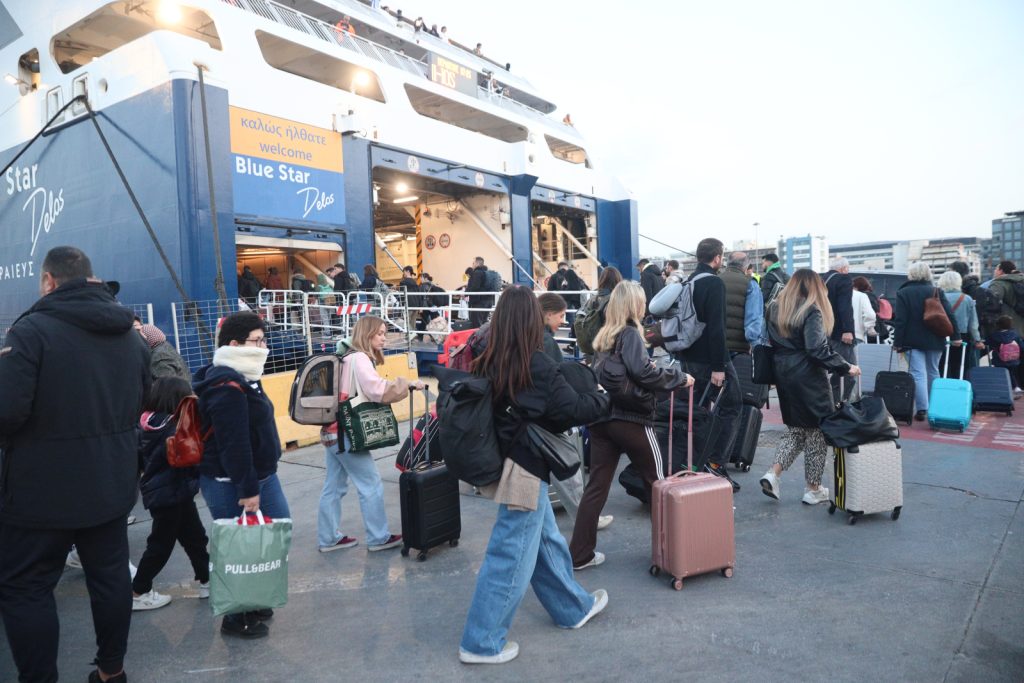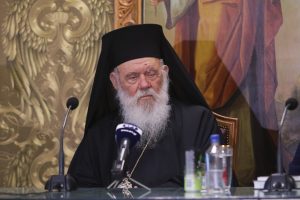Spanish scientists have confirmed the discovery of the remains of 15th-century explorer Christopher Columbus at Seville’s Cathedral of Saint Mary of the See, according to a report from Reuters.
This discovery brings the world closer to solving the mystery of Columbus’s origins, a topic that has fueled debates for centuries. The confirmation may finally settle the argument over where Columbus was truly from and clarify the historical connections claimed by different countries.
The news is expected to be aired on Saturday by Spain’s national broadcaster, TVE, as part of a special program titled “Columbus DNA: The True Origin.”
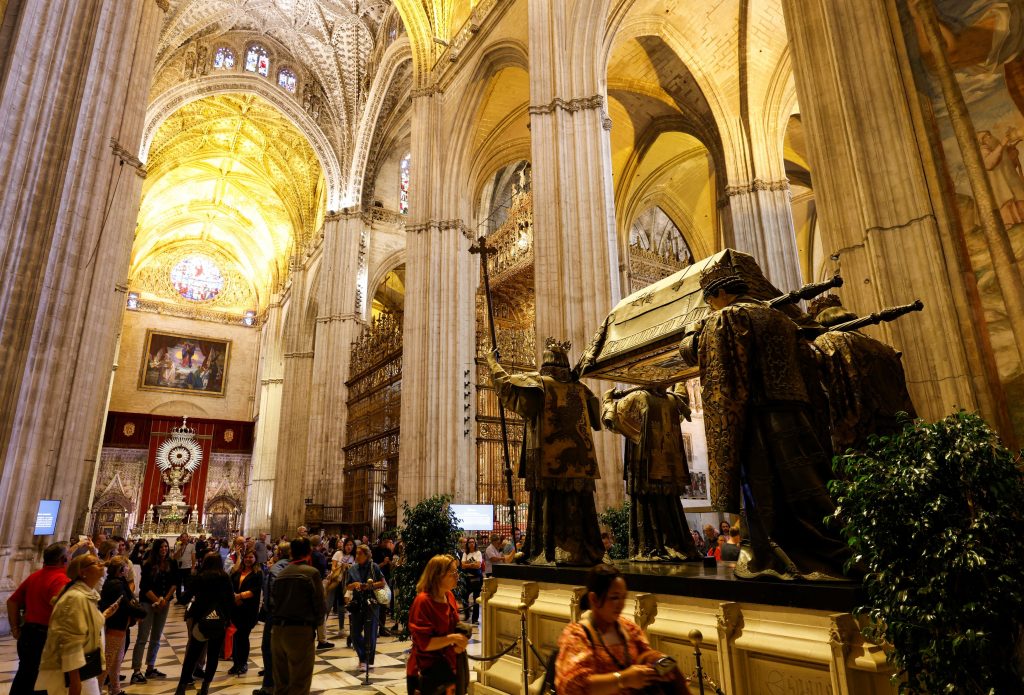
People visit the mausoleum of Christopher Columbus in the cathedral of Seville, Spain, October 11, 2024. REUTERS/Marcelo del Pozo
Reuters explains that while Columbus died in Valladolid, Spain, in 1506, his remains were moved to Hispaniola, then to Cuba, and eventually to Seville in 1898.
In a surprising twist, both Seville and Santo Domingo have long claimed to possess the explorers remains. A forensic expert working on the bones in Seville suggested that both claims could be valid, as neither set of remains is complete.
Greece’s Claim
Over the years, historians have questioned whether Columbus was truly from Genoa, Italy, or possibly from Spain. Others claim he had Jewish, Basque, Portuguese or Greek origins, according to Reuters.
Arguments that Columbus was Greek stem from the fact that he stated he was from the Republic of Genoa, which included parts of modern-day Greece, and the fact that he read and wrote in Greek.
Meanwhile, visitors to the Greek island of Chios might be intrigued by the local claims that he once lived there, and claims by some families of Chios that they can trace their local ancestry back to Columbus. This explains why some of the door frames on houses in the village of Pirgi bear his name.
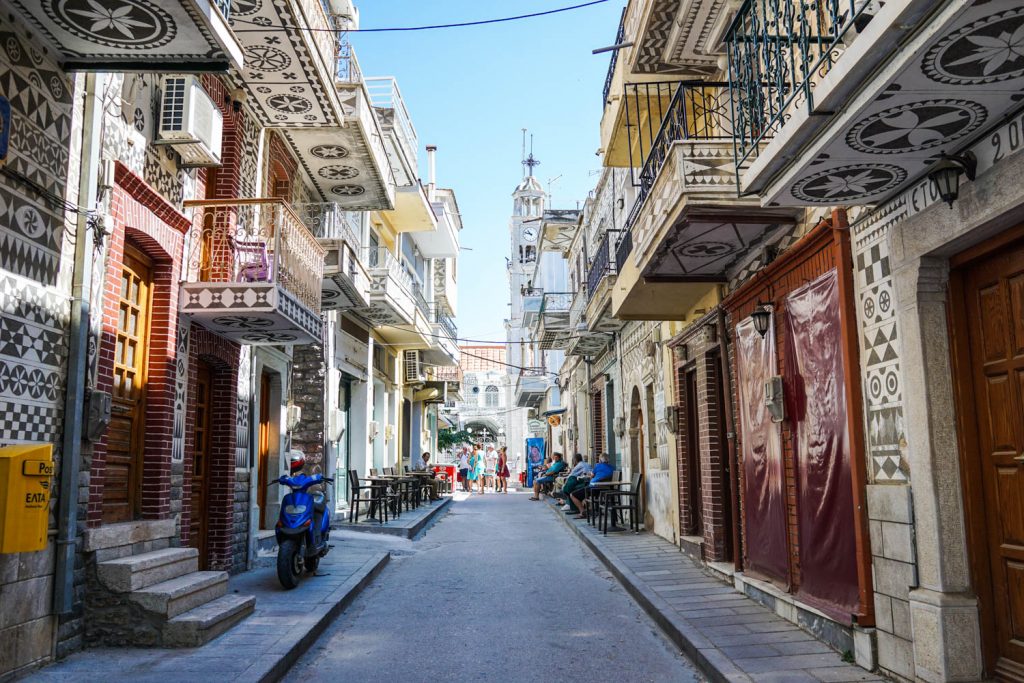
The village of Pirgi, on Chios, where residents claim it was a former home of Columbus.
The Explorer’s Controversial Exploits
Traditionally, Columbus was celebrated as the heroic explorer who “discovered” the Americas, a narrative that was ingrained in American culture through school lessons and the celebration of Columbus Day, a federal holiday established in 1937.
American children often learned the rhyme, “In 1492, Columbus sailed the ocean blue” as part of their history class on his exploits, along with the names of the famous ships the Niña, the Pinta and the Santa Maria.
However, history has gradually revealed a more complex and controversial legacy. Awareness has grown about the consequences of European colonization, including the enslavement of Indigenous peoples and the introduction of deadly diseases to the Americas.
Critics argue that Columbus should no longer be celebrated because his arrival ushered in centuries of exploitation and even genocide of Indigenous populations.
This darker side of Columbus’s legacy has led many to call for the cessation of Columbus Day, viewing the holiday as a celebration of colonialism and the oppression of Indigenous peoples.
As a result, several U.S. states and cities have replaced Columbus Day with Indigenous Peoples’ Day. This alternative holiday honors the cultures, histories, and contributions of Native Americans, reframing the narrative around Columbus’s arrival and recognizing the resilience and significance of Indigenous communities.
The debate has sparked broader conversations in U.S. politics, as other ethnic groups have begun calling for holidays in their honor as well.
